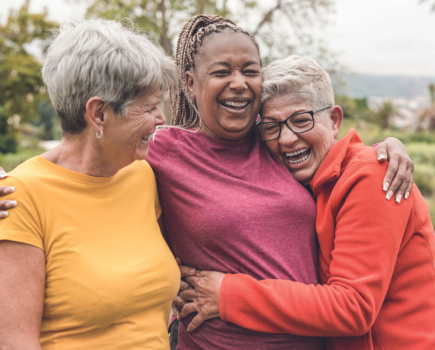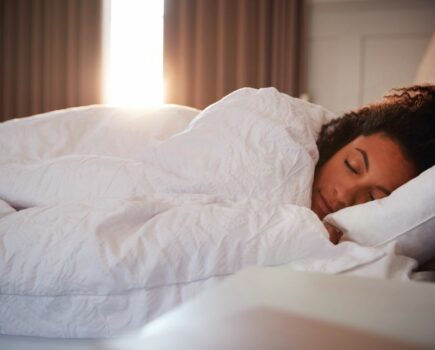It’s your favourite (and easiest) everyday exercise – here are six ways to get more out of your walk.
- Tone it up
Walking is a fantastic workout in and of itself, but if you want to take your daily walk to the next level, pop on some ankle and wrist weights. You’ll feel extra resistance with every swing of your arms and step of your legs, helping to tone as you go.
- Push yourself
Studies have shown that a 155lb person who walks at 3.5 mph on a flat surface for one hour can burn approximately 267 calories, but if they keep the same speed and walk uphill, they could burn up to 422 calories. Try ramping up the treadmill to level five for ten minutes and including more hills in outdoor walks.

- Go bathing
The Japanese concept of forest bathing, or ‘shinrn-yoku’, is said to help lower blood pressure, aid sleep and counteract common illnesses. It’s believed a chemical released by threes and plants, called phytoncide, and boosts the immune system. The practise is thought to be so good for health that British doctors have been prescribing it as ‘lifestyle medicine’. To get your dose, simply spend time walking in woodlands or forested areas 9with a friend, for safety) to enjoy all the many benefits that trees and plants have to offer.
- Use Nordic walking poles
Invest in some walking poles if you want to power up your stroll and turn into a more all-round exercise, Nordic walking poles are said to help improve posture, reduce impact on joints and burn more calories, by incorporating an upper body workout through moving the poles.
- Switch things up
Head to a different park, beach or park to stop yourself getting into a rut. Green spaces in particular are said to be great for boosting mental health. One study found that contact with nature can have a positive effect for those with high levels of stress.
- Bring a friend
We all love having a good gossip with a friend, so whether it’s through a phone call or in-person, a good ‘walk and talk’ is tonic for the soul. One study found that being socially active is associated with higher life satisfaction.








